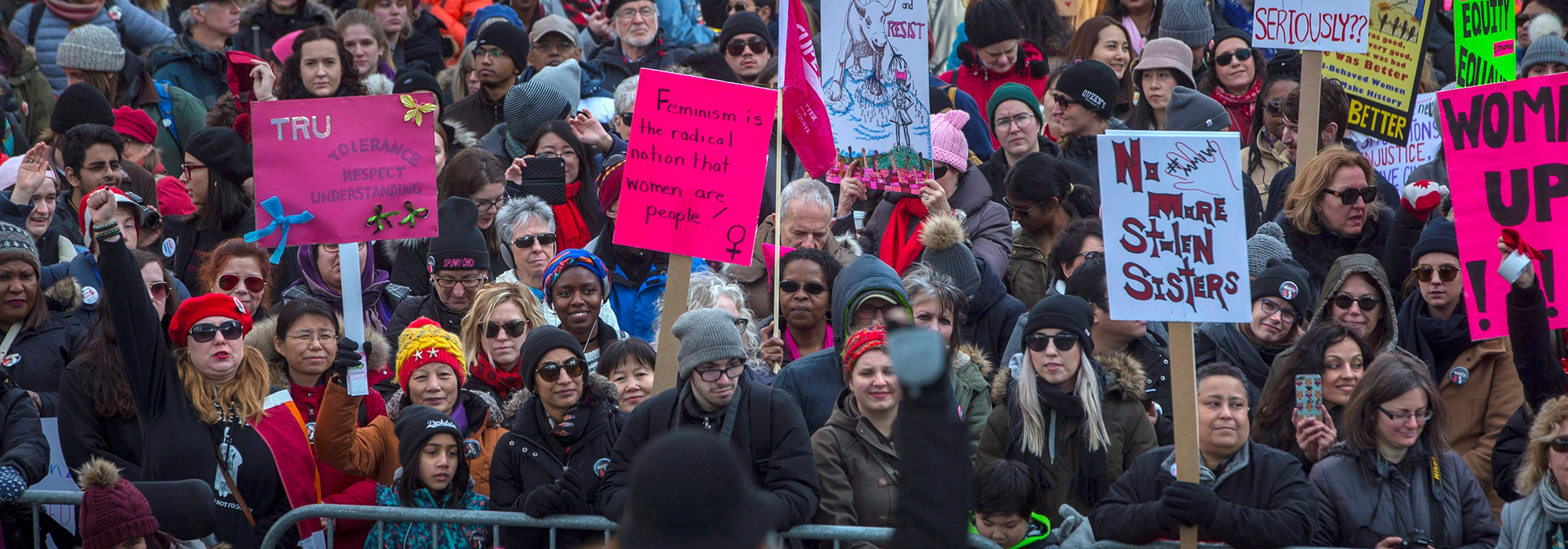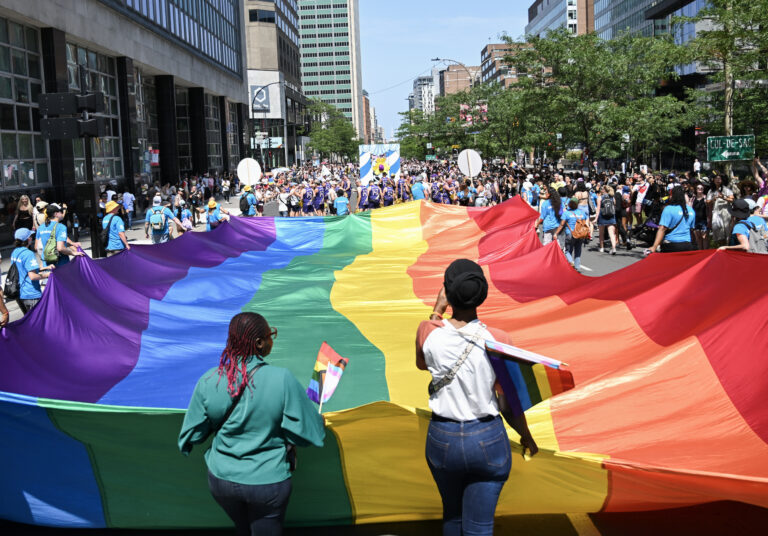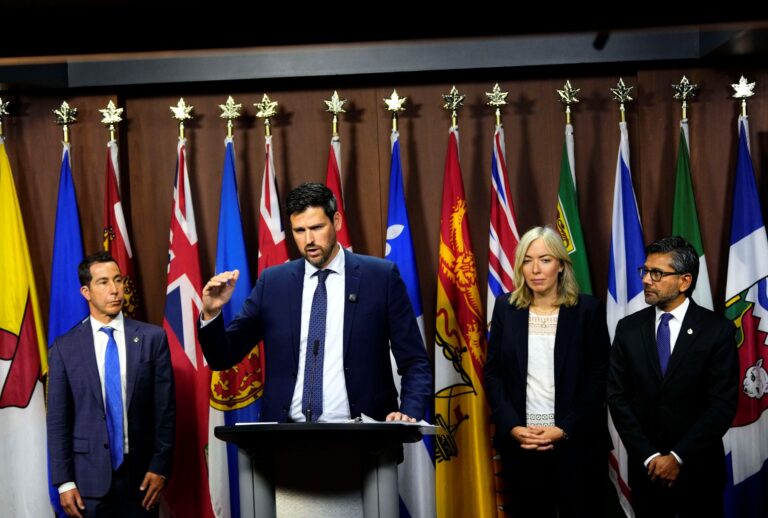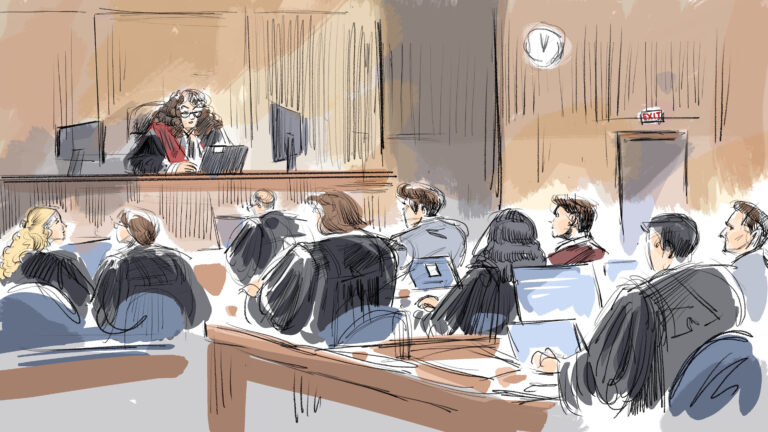(This article has been translated into French.)
Over one year ago, more than 3 million people walked in the US Women’s March. It was a stunning show of solidarity against the incoming Trump administration. The Trump campaign had threatened women’s rights and promoted misogynistic attitudes and was set to advance policies that were regressive to gender equality around the world.
In the months that have followed, the #MeToo movement has continued to gather steam as hundreds of survivors of sexual violence have come forward to speak their truth to men in power. Many of us who choose to work in this area have interpreted these events as a call to arms. If ever there was a “policy window” — a moment in our country’s history to mobilize support for workable solutions to end sexual violence once and for all — that window is now open.
The scope of the problem of sexual violence should be well known. Sexual victimization rates in Canada have remained relatively constant over the past 10 years. Women are the victims in 92 percent of reported sexual assault cases. Young women, female students, single women, and women who live in urban areas have the highest rates of victimization. For instance, over 15 percent of college- and university-aged women will experience sexual assault during their academic careers.
To address the problem, we need to understand what the #MeToo movement represents. The reality of sexual violence runs deep. It is the everyday victimization of countless women and men at work, at school and at home in the context of their professional, academic and intimate relationships. It encompasses the full range of conduct from sexual harassment to sexual assault. It represents the lived experiences of survivors who have been forcibly raped or coerced into sexual activity and who have suffered physical, emotional and psychological abuse.
At the same time, the complexity of the problem requires us to understand how gender and sexuality intersect with the race- and class-based systems of oppression in our society. In practice, this means that some women and men are more vulnerable to sexual abuse than others. Many survivors face unique barriers to accessing the justice system and obtaining the social supports they need to recover. The #MeToo movement illustrates this. Among the survivors who have come forward, members of historically marginalized groups — racialized women and men, immigrants, persons with disabilities, newcomers to Canada, LGBTQ2 people — are severely underrepresented.
We need to modernize the criminal justice system to ensure that every survivor of sexual violence — no matter what they look like, where they come from or whom they love — is treated with equal compassion and respect. This should not be controversial. Yet it has been well documented that many survivors experience the pursuit of criminal justice — intense public scrutiny, gendered social media backlash and the considerable time and expense involved — as deeply retraumatizing.
We need to modernize the criminal justice system to ensure that every survivor of sexual violence is treated with equal compassion and respect.
There has been some progress in addressing these issues over the last year. One positive development has been the introduction of Bill C-51, a law that will strengthen our country’s rape shield provisions to protect against the misuse of sexual history evidence in determining consent. Additionally, the law will make clear that if an accused person claims he acted under an honest but mistaken belief in consent, the onus falls on him to prove it.
While these reforms are a good start, they do not go far enough. The fact remains that for every 1,000 incidents of sexual assault in Canada, only 33 are reported to police, 12 result in charges, 6 proceed to trial and 3 lead to conviction. One in five reported cases are dismissed by the police as “unfounded.” These disturbing trends speak to more fundamental problems with the structure of the criminal justice system and our collective responses to the problem.
Specifically, the criminal justice system continues to operate against a backdrop of sex-based stereotypes and “rape myths” that are pervasive in our society. One of these beliefs is that “rough sex” is an accepted cultural practice or that some women enjoy it. Another of these beliefs is that only women who behave like “perfect victims” — women who are chaste, dress modestly or fight their assailants — should be believed and taken seriously by law enforcement. While the introduction of Bill C-337, a law that will mandate special training for judges who hear sexual assault cases, should help to dispel these myths in court, we need a law that mandates special training for prosecutors, defence lawyers and police officers as well.
Another issue is that the criminal justice system retains an incident-based understanding of sexual violence. This means that when survivors come forward to report their assaults, law enforcement tends to focus on whether they show evidence of immediate physical injury. This focus is often wrong. Many survivors, particularly women who are assaulted by their intimate partners, suffer ongoing abuse through what is known as “coercive control,” or a pattern of intimidation, humiliation, deprivation and force that is typically less visible than forms of physical injury. To help these women, we need law enforcement to work closely with antiviolence experts so that they can understand the signs and provide targeted supports for women who experience it.
These problems with the criminal justice system are such that many survivors — understandably — have refrained from seeking redress through the legal system altogether. The #MeToo movement proves this, which helps to explain why it has inspired backlash from both the left and the right. The court of public opinion is not a court of law. And, like it or not, the court of public opinion has delivered results for many survivors. Make no mistake: our courts of law need to be reformed, not abandoned, in all of the above ways. But the #MeToo movement has helped to expose the structural inequalities in the legal system that disadvantage women. We need to brainstorm more creative solutions than what the courts can offer us.
To that end, we support the use of restorative justice in sexual violence cases where survivors request it and offenders admit blame. In a restorative justice process, a qualified facilitator brings together the survivor, the offender and community members to discuss the harm caused by the offender’s actions — the central focus being the survivor’s experience — and to decide on a collective action plan about how to move forward. Research shows that this method reduces recidivism and can help to transform the social and cultural conditions that fostered the acts of violence in the first place.
The #MeToo movement, like other social movements before it, may soon fade into the annals of history. We are living in a moment that presents us with a unique opportunity to change the way that we think about sexual violence. Let’s not allow this moment to pass us by.
This article is part of the Widening the Lens on Criminal Justice Reform special feature.
Photo: People listen to a speaker as they gather in Nathan Phillips Square, before embarking on a Women’s March in Toronto on Saturday, January 20, 2018. THE CANADIAN PRESS/Chris Young.
Do you have something to say about the article you just read? Be part of the Policy Options discussion, and send in your own submission. Here is a link on how to do it. | Souhaitez-vous réagir à cet article ? Joignez-vous aux débats d’Options politiques et soumettez-nous votre texte en suivant ces directives.












